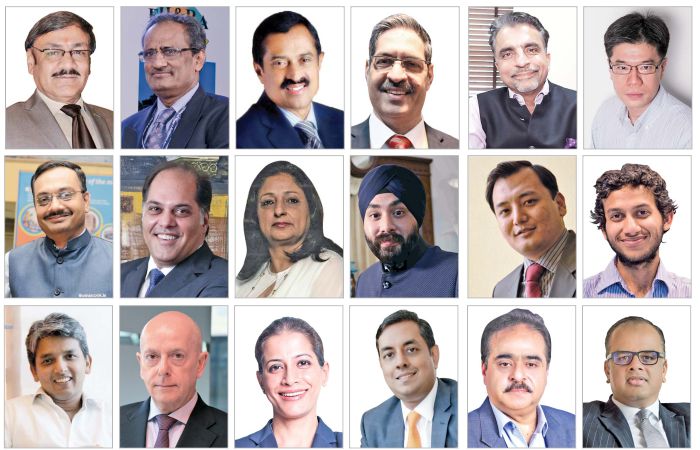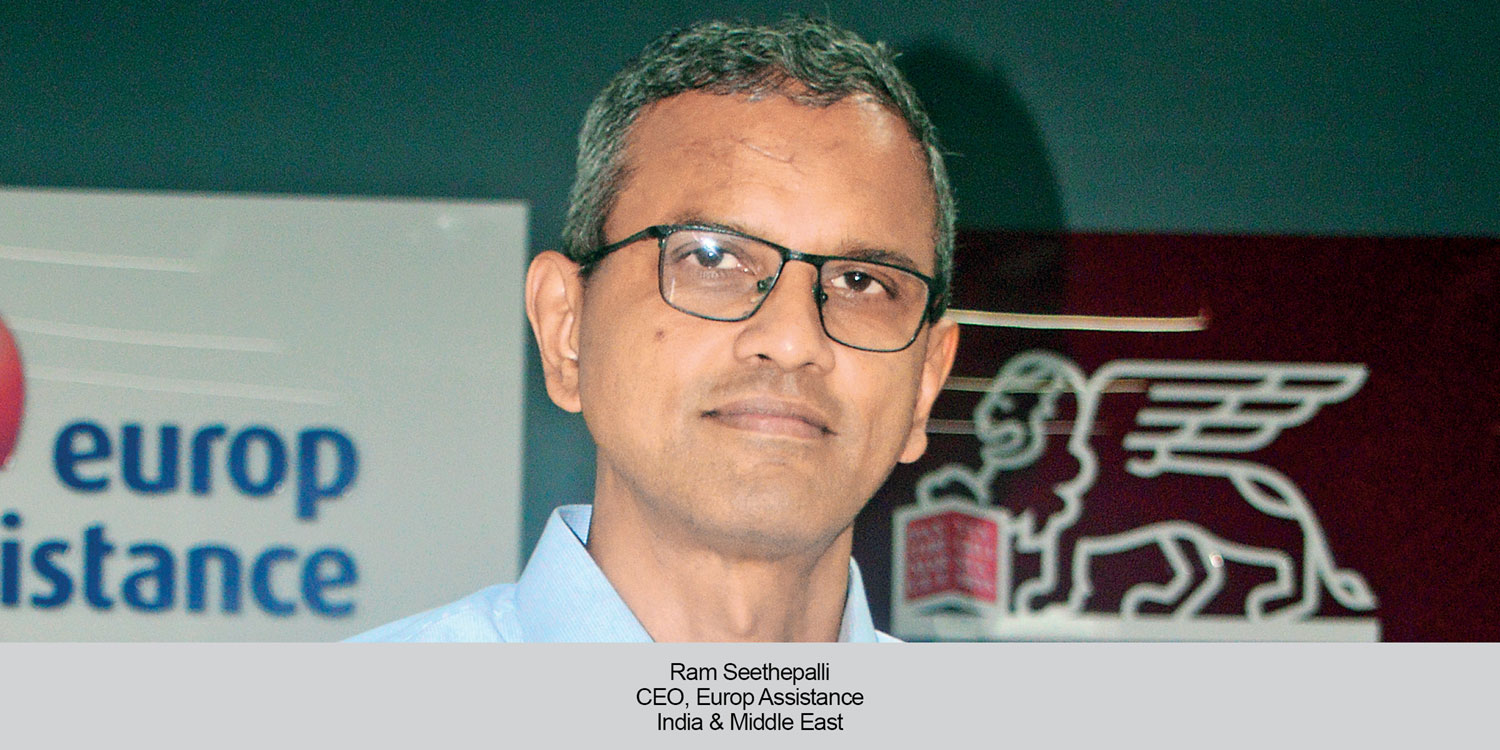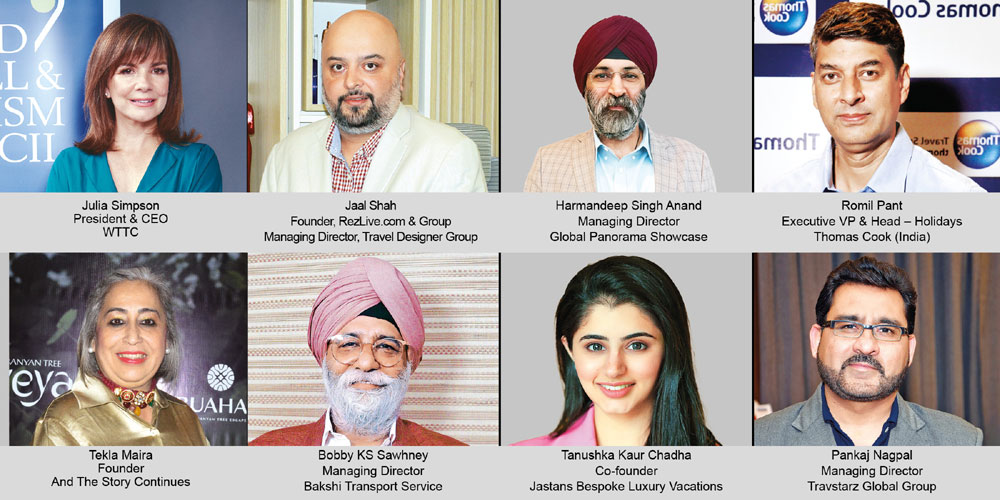The Union Budget, announced on February 1, 2017, disappointed many in the trade, while others lauded the Ministry of Finance for creating avenues for employment and investment in the industry. Here’s what the stakeholders from various verticals have to say
P. P. Khanna, President, ADTOI
The Union Budget didn’t directly focus on tourism, but was more directed at the rural sector, youth and infrastructure. However, there was a mention of the Global Incredible India campaign. Also, the proposal of developing India International Institutes for foreign languages would really benefit the tourism industry, and would offer employment to almost one lakh students every year. The dedication towards Clean India and Skill India would also result in a boost to tourism and create employment in this sector, as well as boost domestic tourism. Another positive is the waiving off of service charge on IRCTC bookings.
K. Syama Raju, President, FHRAI
Total investment for infrastructure in budget 2017 stands at a record Rs. 3,96,135 cr, some of which will be used to set up 3,500 km railway lines. The initiative where service charge on rail tickets booked through IRCTC will be withdrawn is appreciable. This will further increase the occupancy in hotels located in smaller cities where there is no air connectivity. The major fillip provided to the industry is via infrastructure development, which is imperative for travel and tourism, and will boost the macro economy. This would effectively trickle down to the industry.
E. M. Najeeb, Gallery of Legends, India Travel Awards 2015 & Chairman & MD, ATE Group of Companies
We welcome the budget, and the fact that the Finance Minister accepted that tourism is an employment generating industry, which is a good recognition. Proposal of five new special economic zones for tourism is such a good idea. However, the government should make sure that it is implemented in time. Even airport development in Tier-II cities is extremely appreciated as indirectly it will help in domestic as well as international travel. Apart from this, launching pilgrimage trains, special tourist trains and new circuits is also a positive step. However, keeping the service tax at 9 per cent for tour operators is a major setback for the tourism industry.
Homa Mistry, India Travel Award winner & CEO, Trail Blazer Tours India
Tourism has been going through very tough times and we have realised that we are on our own. I did not have any expectations from the government and as always the Budget did not have anything for the tourism and hospitality industry. I am just not surprised. We are however looking forward to the Good and Services Tax (GST) Bill, which too would be more of a bomb dropped on us.
Vikram Madhok, India Travel Award winner & Managing Director, Abercrombie & Kent India
The Budget really has not taken tourism into much consideration as there are no major amendments in favour of it. Yes, a lot has been said about the railways in the Budget and we welcome any other infrastructure investment, but there is not much that is going to help the industry directly. This year’s Budget has nothing much for the industry which is quite disheartening since tourism contributes to the economy in a big way.
Albert Tjoeng, Assistant Director, Corporate Communications, Asia Pacific at IATA
The Budget 2017 has added new provisions for the future introduction of submission of PNR data by airlines to the Indian Customs. IATA hopes that the established global standards for transmission of PNRGOV data would be adhered to. We would also urge that stakeholder consultations precede the development of any regulations detailing the form and data elements for this information.
Mahesh Iyer, COO, Thomas Cook (India)
This Budget has very little to offer to the tourism industry, but with plans to launch Incredible India 2.0 as the next phase of growth for domestic tourism with respect to India, there is something to look forward to. India has a vast railway network and the recently announced Railway Budget acknowledges the strength of this. One of the biggest announcements is the withdrawal of service charge on rail tickets booked through IRCTC. This will not only lead to more bookings but will enable the consolidation of a digital economy. Another significant development is the emphasis on safety and sanitation, by introducing bio-toilets, which will increase passenger comfort.
Peter Kerkar, Director, Cox & Kings
Infrastructure is a part of the 10 most important themes in Union Budget 2017 with allocation for infrastructure at a record `3,96,135 crore. Road and rail infrastructure are crucial in terms of boosting tourism as these are widely used mode of transport in India. In this context, stepping up the allocation for national highways to `64,000 crore, announcement to launch dedicated trains for pilgrimage/ tourism and service charge withdrawal on booking of rail tickets are welcoming moves which will help to accelerate domestic and inbound travel. Provisions made for clean and safe rail travel and making 500 rail stations disabled-friendly are also encouraging.
Ratna Chadha, Chief Executive, TIRUN, exclusive India representative of Royal Caribbean Cruises
We hope that the union budget will have a positive impact on the tourism industry, which is a great employment generator, resulting in a significant multiplier effect on the economy. We are happy to see infrastructure development at airports in Tier-II and Tier-III cities, as most aspirational India resides here. As Indian r e p r e s e n t a t i ve for Royal Caribbean Cruises, we want to cater to Indians who aspire to explore the world differently.
Gursahib Singh Sethi, Co-founder, Travkart.com
Further to the announcement for increase in railway connectivity to the remote areas and upgradation of airports in Tier-II cities, a huge number of people will be able to travel smoothly from Tier-II and Tier-III cities. The high speed Internet connectivity in rural areas will be the biggest advantage to them. We are expecting more travel coming ahead. Along with this, reducing the income tax to 5 per cent for the people having an earning bracket of `2.5-5 lakhs, will be a crucial factor in their saving. This will increase their budget to travel and will also motivate youngsters and young entrepreneurs to pay taxes.
Aurvind Lama, CEO, Travelyaari
The Union Budget bought in progressive outlook with due importance given to infrastructure development and tech development. The investment proposed in building National Highways along with developing road network is a welcome step especially for a player like us in bus industry. This infrastructural development will greatly benefit the travel and tourism industry. Focus on improving the Internet and broadband connection in rural areas will go a long way to digitalise cashless economy and connecting them to the main stream. The government’s focus on inclusion and encouragement of the MSME sector along with start-ups is also visible.
Ritesh Agarwal, Founder & CEO, OYO
The launch of the Incredible India 2.0 campaign will result in greater tourist interest and inflow from overseas, creating a huge demand and opportunity for the Indian hospitality industry. The proposed creation of five special tourism zones in partnership with state governments will also provide excellent fillip to domestic tourism. It is encouraging to note the government’s focus on infrastructure development as it forms the backbone of tourism and hospitality sector. Furthermore, reduction in tax rate for SME and the push towards digital economy by de-incentivising cash transactions will support new-age businesses and start-ups.
Rakshit Desai, Managing Director, FCM Travel Solutions
I believe the Union Budget provides a good perspective on building a stronger ecosystem by focusing on development of key aspects such as rural areas, infrastructure and poverty alleviation. With an objective to clearly give further impetus to both domestic and inbound tourism, we feel the strategic vision for the Incredible India 2.0 campaign announced by the finance ministry is a positive step. The budget this year focuses on building infrastructure with significant investments in roads, railways and airports in Tier-II cities to boost regional connectivity to far-flung areas. This we believe will encourage tourists to visit more places in their local vicinity or within India itself.
Jean-Michel Cassé, Chief Operating Officer, India and South Asia, AccorHotels
Regional connectivity is poised to improve as select airports in Tier-II cities will be developed or revamped for operations via the PPP mode. The introduction of more trains and launch of dedicated lines for pilgrimage and tourism purposes will further promote domestic travel, presenting growth opportunities for the economy and mid-market hotels, a segment we are strongly focused on. We look forward to more opportunities for development of hotels in Tier-II and Tier-III segments, benefitting from increased access and a higher number of untapped destinations realizing their tourism potential. The push on infrastructure development is a catalyst for the emergence of a greater number of new industrial cities, thus creating new opportunities for hoteliers.
Anshu Sarin, CEO, Berggruen Hotels
The Budget has induced positive sentiments at a macro level. The intention of setting up special tourism zones in partnership with states is a good step. Focus to build national highways is a welcome move for the deprived infrastructure, which is a major hindrance to the development of the hospitality and travel sector. The waiving of service charge on e-tickets will have a positive impact. Recommendations on tax benefits for MSME and start-ups will certainly boost their business and would indirectly help mid-market business hotels. Further strengthening of digital transaction is aligned with our focus on promoting hotel bookings through our brand website and call centre.
Gaurav Singh, General Manager, Courtyard by Marriott and Fairfield by Marriott, Bengaluru
We believe that the Union Budget for 2017 is a step in the right direction for the hospitality industry across the country. The cash transaction limit till 3 lakhs will normalize the cash flow after the effect of demonetisation. No change the GST across platforms will benefit the hospitality sector. Direct rates reduced will give entry-level customers a fair share of disposable income. These developments will benefit the premium hospitality chains immensely for the coming year.
Dilip Datwani, President, Hotel and Restaurant Association of Western India (HRAWI)
We had very high expectations from this year’s Union Budget for tourism and hospitality. Based on the Government’s vision for tourism, our hopes were to receive the much needed reduction in taxes, which would come into effect in the GST rollout later this year. Also, we had hoped that the government would grant infrastructure status to hotels with a project cost of `25 crore as against the present `250 crore. Hospitality is a big contributor to the Tourism GDP, the biggest employer and also one of the biggest generators of Foreign Exchange to the country. It is very disheartening to know that the Union Budget has completely ignored tourism and hospitality.
Krishna Kumar, GM, Radisson Hitec City Hyderabad
The Finance Minister has outlined a very balanced Budget. In my view, there is enough for all sectors to look forward to. Although, there was not one major big announcement that was expected after the demonetisation process. Hospitality sector is expected to stay course with pointers in the budget that will marginally spur up the growth as well as the spend. The decrease of tax structures for the `2.5-5 lakhs segment is likely to increase spending power from this segment that will benefit mid-scale brands.
 TravTalk India Online Magazine
TravTalk India Online Magazine





